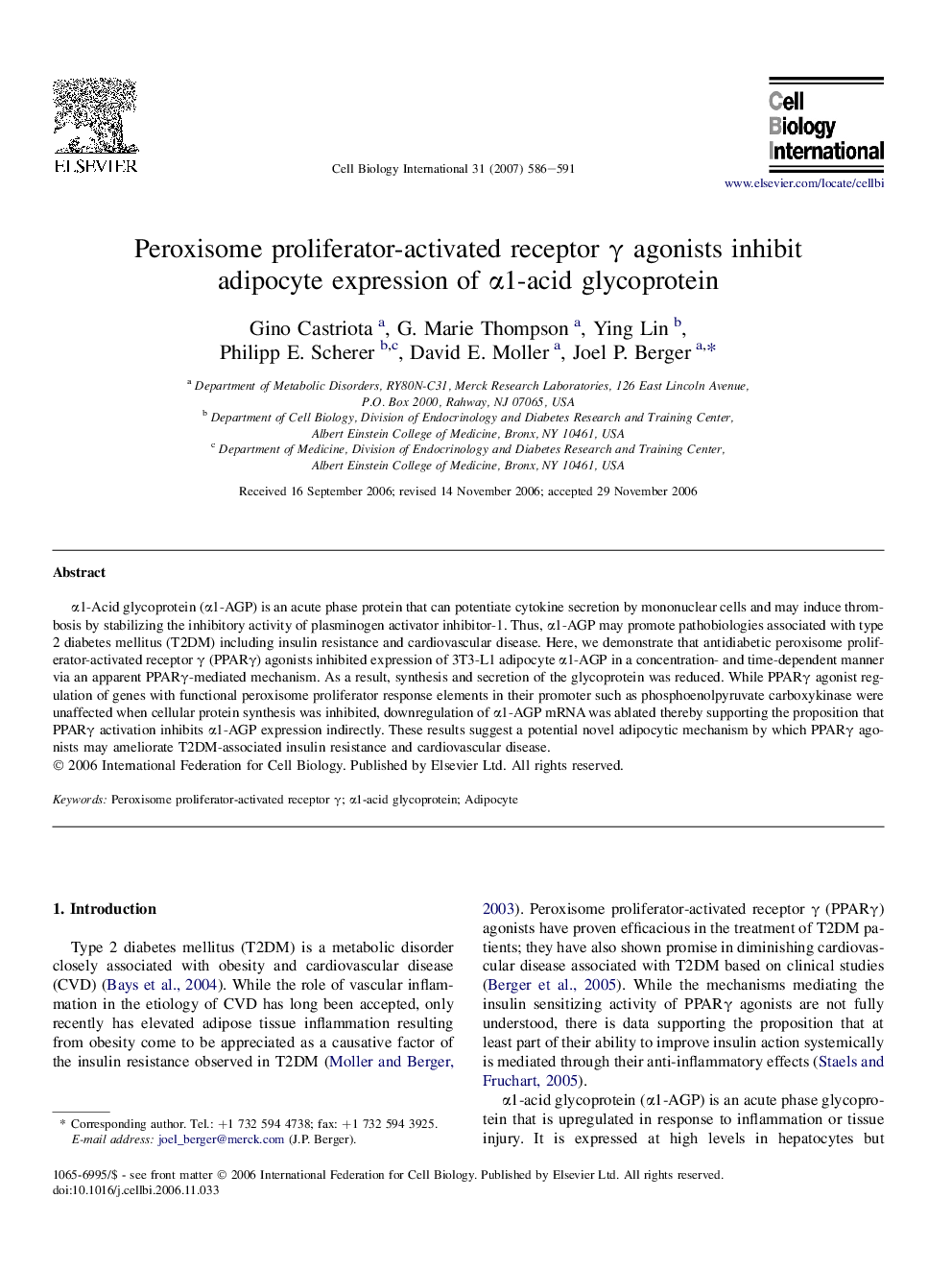| Article ID | Journal | Published Year | Pages | File Type |
|---|---|---|---|---|
| 2067739 | Cell Biology International | 2007 | 6 Pages |
Abstract
α1-Acid glycoprotein (α1-AGP) is an acute phase protein that can potentiate cytokine secretion by mononuclear cells and may induce thrombosis by stabilizing the inhibitory activity of plasminogen activator inhibitor-1. Thus, α1-AGP may promote pathobiologies associated with type 2 diabetes mellitus (T2DM) including insulin resistance and cardiovascular disease. Here, we demonstrate that antidiabetic peroxisome proliferator-activated receptor γ (PPARγ) agonists inhibited expression of 3T3-L1 adipocyte α1-AGP in a concentration- and time-dependent manner via an apparent PPARγ-mediated mechanism. As a result, synthesis and secretion of the glycoprotein was reduced. While PPARγ agonist regulation of genes with functional peroxisome proliferator response elements in their promoter such as phosphoenolpyruvate carboxykinase were unaffected when cellular protein synthesis was inhibited, downregulation of α1-AGP mRNA was ablated thereby supporting the proposition that PPARγ activation inhibits α1-AGP expression indirectly. These results suggest a potential novel adipocytic mechanism by which PPARγ agonists may ameliorate T2DM-associated insulin resistance and cardiovascular disease.
Related Topics
Life Sciences
Biochemistry, Genetics and Molecular Biology
Biophysics
Authors
Gino Castriota, G. Marie Thompson, Ying Lin, Philipp E. Scherer, David E. Moller, Joel P. Berger,
